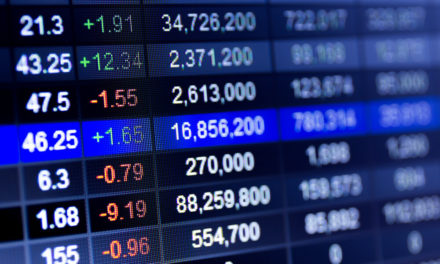Hindsight is 20/20, so now that the worst month for the stock market in seven years is over, Bloomberg’s Barry Ritholtz offers up his five reasons for the October horror show.
Per Bloomberg:
No. 1: Remember 2017
The gains of last year were very unusual. Not only were the double-digit increases much stronger than the median returns over time, they came about with almost no volatility. My best guess is that a market that leaves 2018 with little or no gain simply represents mean reversion at work. And, that’s a great deal! Imagine the God of Trading came to you and promised 20 percent gains in year one, followed by no gains in year two. You would take that offer in a heartbeat.
No. 2: High Stock Market Volatility Follows Low Volatility
Similarly, the low volatility of 2017 was teeing up the higher volatility once the calm had run its course. As economist Hyman Minsky argued in his essential book “Stabilizing an Unstable Economy,” booms and busts are the natural tendency of complex, capitalist economies. Said differently, stability inevitably begets instability.
No. 3: Extreme Optimism
Record profits, tax cuts, deregulation, low interest rates, low unemployment — it’s all so great. When stock prices are at record highs and the crowd is enthusiastic, Mr. Market will do what he can to humiliate investors. As legendary investor Bernard Baruch said, “The main purpose of the stock market is to make fools of as many men as possible.”
Markets demand humility — the acceptance of how little we actually know about the present, and an admission that we know nothing about the future.
No. 4: The Era of Cheap Money is Ending
The post-crisis period of zero interest-rate policy ended in 2015. The Federal Reserve has been quite transparent in telling markets that higher rates were coming as policy makers shifted from their post-financial-crisis emergency footing. How fast rates rise would be a function of the economic data — including President Trump’s tariffs and trade war, which are fundamentally inflationary. As we discussed last week, filling the Fed with inflation hawks guaranteed that rates would rise somewhat faster than they might have otherwise.
No. 5: The Global Economy is Slowing
Lastly, growth in most of the world’s major economies is losing a little bit of steam. This doesn’t mean a recession is imminent or that a catastrophe is on the horizon. But it does mean that much of the sugar high we have been experiencing thanks to things like tax cuts, record corporate profits and huge share buybacks are already reflected in stock prices. The market isn’t perfectly efficient — I am fond of saying it’s kinda, eventually, sorta, mostly efficient — but it gets the really big issues more or less right over time.



